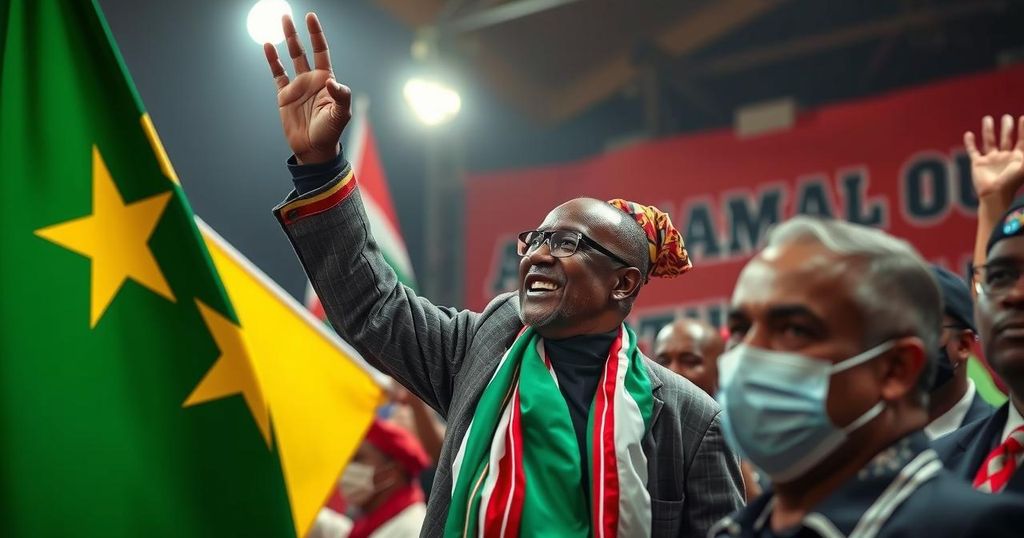Abdirahman Mohamed Abdullahi Wins Somaliland Presidential Election

Abdirahman Mohamed Abdullahi of the Waddani Party has won the Somaliland presidential election with over 50% of the vote, defeating incumbent President Muse Bihi Abdi. The election faced delays but reflects Somaliland’s ongoing political development amid its quest for international recognition and stable governance in contrast to Somalia’s challenges.
Abdirahman Mohamed Abdullahi, the leader of the opposition Waddani Party, has emerged victorious in the Somaliland presidential election, securing over 50% of the votes cast. This announcement was made by the electoral commission on Tuesday, marking a significant political shift in the region. Incumbent President Muse Bihi Abdi, representing the ruling Kulmiye Party and seeking a second term, received just above 30% of the votes. The election was notable not only for its outcome but also for having been delayed twice since 2022 due to funding issues and other logistical challenges. Somaliland, which declared independence from Somalia in 1991 amidst civil unrest, has maintained its own government and systems of governance despite lack of international recognition. The region has developed a comparatively stable political environment, in striking contrast to the broader security challenges faced by Somalia. Recently, a controversial agreement with Ethiopia allowing Somaliland access to the Indian Ocean in exchange for recognition has heightened tensions with Somalia, which alleges that Ethiopia is infringing upon its territorial integrity.
Since declaring independence from Somalia in 1991 following a period of conflict, Somaliland has established functional governmental institutions and a degree of political stability that is rare in the region. Despite its self-declared sovereignty, Somaliland remains unrecognized by the international community. The recent electoral process, marked by delays and challenges, reflects ongoing political developments in a region that has steadily sought greater autonomy and recognition on the global stage. This election outcome is pivotal as it may influence Somaliland’s future relations with both Somalia and Ethiopia, particularly given the recent agreement regarding access to the Indian Ocean, which poses potential sovereignty concerns for Somalia.
The recent election in Somaliland presents a potential turning point in the region’s political landscape, with Abdirahman Mohamed Abdullahi’s victory signifying a shift in power dynamics. As Somaliland navigates the challenges of international recognition and regional relations, particularly with Ethiopia and Somalia, the implications of this election will be closely watched. The ongoing evolution of Somaliland’s political framework may set a precedent for stability and governance in a historically tumultuous area.
Original Source: apnews.com






